Term Loans
Term Loans
Secure lump sum funding and pay back what you borrowed over a flexible term.
Qualifications:
- 1+ Year in Business
- $500,000+ in Annual Revenue
Secure lump sum funding and pay back what you borrowed over a flexible term.
Qualifications:
- 1+ Year in Business
- $500,000+ in Annual Revenue

Empower Your Growth with Term Loans: Secure, Stable, and Tailored Financing
What is a Term Loan?
A term loan allows borrowers to access a set amount of capital they must repay over time. The total amount, plus interest, is repaid throughout the term through monthly, weekly, or daily payments, depending on the length of your financing.
Businesses leverage term loans for challenges and opportunities in their business. Whether you’re looking to bridge a payment gap, hire new staff for an upcoming project, or invest in a new marketing initiative, this type of financing can offer the funds you need to accomplish your goals.
Unlike private equity, debt financing provides capital without an exchange of ownership. You maintain full ownership of your business after securing a term financing; The only risk is the financial ramifications of late payments/total defaults.
Term Loans FAQs
How Do Term Loans Work?
Term loans work just as the name suggests – you’re given a “loan” to repay over a set “term.”
You can secure a short repayment or a long one, depending on your business and goals for the financing. In most cases, short term loans are used for short term revenue-driving opportunities that will yield a return within the repayment period. On the other hand, long term financing is better suited for major projects or investments that won’t immediately pay off.
Some lenders require borrowers to offer collateral as a method of “securing” their financing. While secured term loans come with less intensive eligibility requirements and possibly lower interest rates, offering collateral isn’t always an option for every business. Unsecured loans are usually the preferred option, but remember that unsecured financing comes with inflated eligibility requirements and, in some cases, higher interest rates.
Remember: It’s easy to use your funding and difficult to repay it, so make sure you’re prioritizing your repayment at all stages of the process. Making consistent, timely payments to your lender is one of the most important aspects of any type of financing. One or two late payments may not have a detrimental effect, but missing payments altogether puts you at risk of defaulting on your financing.
How Can I Use My Term Loan?
Entrepreneurs secure term loans to solve challenges or take advantage of opportunities in their businesses. Let’s explore a few of the most common.
- Cover Expenses
The cost of your inventory, payroll, rent, and other operational expenses can limit your liquidity and make growth challenging. Funding offers the opportunity to cover these expenses and focus on other areas of your business.
- Bridge Payment Gaps
Late customer payments can congest your cash flow. With a term loan, you’re provided with a lump sum of cash to cover these costs until invoices are paid.
- Increase Purchasing Power
Funding complements your liquidity and gives you the ability to make larger purchases. Instead of figuring out a way to afford a sizable purchase, you can manage the payment over time and preserve your cash flow.
- Invest in Growth
Growth isn’t easy, and it’s definitely not cheap. Financing allows you to invest in your business and, more importantly, take advantage of opportunities that come your way.
How Do You Qualify for Term Loans?
Every lender has different qualifications. Some specialize in startups, while others only work with the most established businesses. In either case, you’ll have to meet minimum credit score, annual revenue, and time in business requirements to reach an approval, which will differ depending on the lender you’re working with.
There are two main types of lenders.
Banks and Credit Unions
Often the first stop for entrepreneurs, banks and credit unions are commonly referred to as the “traditional lenders.”
Most banks and credit unions need to see 700+ credit scores, $500,000+ in annual revenue, and 2+ years of business experience to approve your business for financing. They offer term financing with low interest rates and favorable terms, but receiving an approval is challenging due to their restrictive eligibility criteria.
Private Lenders
Private lenders, otherwise known as non-bank lenders, exist outside of banks and credit unions.
Some don’t enforce credit score minimums, but a majority require 580+ credit scores, $500,000 in annual revenue, and at least one year in business. They offer a wide range of financing solutions with less restrictive eligibility requirements and faster funding times, but they often come with higher interest rates on average.
At NexxFund Financial, we have options for all credit profiles.
Pros and Cons of Term Loans
Business term loans come with numerous benefits, but they aren’t a blanket solution for every entrepreneur.
Pros
- Lump sum payment to invest in your business
- No exchange of equity
- If a lender reports to a business credit bureau, repayment can strengthen your business credit score
- Consistent, timely repayments can build creditworthiness and credibility with your lender
- Stagnant payment schedule
Cons
- Not as flexible as business lines of credit
- If you need additional funds, you’ll have to take out another loan
- Interest rates can be higher than other forms of financing
- May need to offer collateral
Term loans are best used for challenges, opportunities, and projects where you know exactly how much you’ll need. They don’t offer the flexible access to capital that a business line of credit can, nor do they offer the specialized benefits of equipment financing. But if you’re looking for a lump sum of cash to manage throughout your repayment period, they’re an excellent resource to leverage as you invest in your business.
How to Apply for a Term Loan for Business
Entrepreneurs can secure term loans from banks, credit unions, private lenders, and FinTech marketplaces. Each organization will offer different rates, terms, and funding amounts, so it’s recommended to shop around and receive multiple offers to ensure you’re getting the best deal.
Get In the Right Headspace
Before you start applying to lenders, though, there are a few important questions you should ask yourself:
- How much do I need?
- When do I need it?
- What am I using the money for specifically?
- Do I have a plan on how I’ll use the funds
- How long will I need to repay the borrowed amount?
- How much can I afford to pay for my financing?
These will get you into the right headspace and, more importantly, ensure you’re entering the situation with a plan. Once you’ve done this, it’s time to start applying to lenders.
Come Prepared
The application process for business term loans differs from lender to lender, but you can expect to provide the following information:
- At least one full year of business bank statements
- Two – most recent – business tax returns
- Balance sheets
- Cash flow statement
- Profit and loss statement
- Business debt schedule, if applicable
- Details of accounts receivable and accounts payable
- Description of and proof of ownership for collateral
- Proof of business insurance
- Licenses, permits, articles of incorporation, and other legal documents
- Business certificate
- Detailed personal financial information
- Complete business plan, including a detailed description of your business, products or services, structure, management, and marketing plan, as well as financial projections
What to Expect
Each of these documents will help the lender understand your business as a whole. Once submitted, they’ll begin their review process and determine what terms you qualify for. This time period is commonly referred to as the “underwriting process.”
The lender will return with an approval or denial of your application. If you’re approved, you’ll receive a contract with a funding amount, interest rate, and repayment schedule your business qualifies for. There’s some room for negotiation, so feel free to push back and ask why your contract is a certain way.
After you’ve applied with multiple lenders, found the best one, locked in your contract, and received your funds, you can start leveraging them for your opportunity or challenge. Don’t get carried away with spending; Stick to your plan and invest strategically, taking note of how you’ll repay the borrowed funds with each investment or purchase.
Types of Term Loans
| Description | |
|---|---|
| Short-Term Loans | Short-term loans have expedited repayment periods between 6 and 18 months. These are best for situations where you’ll see a near-immediate ROI from your financing, like purchasing the upfront costs needed for a project or picking up bulk inventory for a holiday season. |
| Intermediate-Term Loans | Intermediate repayment falls between 1 to 3 years. It’s essentially a middle ground for entrepreneurs who don’t need short or long-term financing. |
| Long-Term Loans | Entrepreneurs select longer repayment periods to lower their monthly payments and spread out the borrowed amount for as long as possible. Although you’ll pay more in interest payments, opting for longer repayment periods is a way to preserve your cash flow. |
Term Loan Amounts, Rates & Time to Fund
Questions to Ask Before Applying for a Business Line of Credit
APPLY FOR FUNDING
Fill out this quick form and our NexxFund Financial loan specialist will contact you!
Call A Specialist Today



